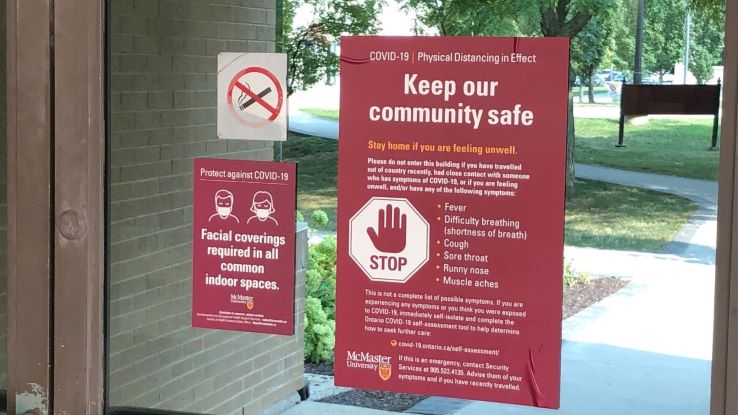Ensuring the best use of research evidence in the future

Michael Wilson, with John Lavis and supported by co-investigators from a large multi-disciplinary group of researchers, has been awarded $225,000 by the Canadian Institutes of Health Research (CIHR) to systematize the aspects of using research evidence that have gone well during the pandemic, and to address the many shortfalls.
The COVID-19 pandemic has created a once-in-a-generation focus on research evidence across all levels of decision-makers. Their decisions have profoundly shaped the pandemic response and will shape responses to future societal challenges.
Mike Wilson, with John Lavis and supported by co-investigators from a large multi-disciplinary group of researchers, has been awarded $225,000 by the Canadian Institutes of Health Research (CIHR) to systematize the aspects of using research evidence that have gone well during the pandemic, and to address the many shortfalls.
The project, entitled “Building a coordinated evidence-support system in Canada to inform policymaking about health and social systems,” will run for two years.
The synopsis notes that with the value of research evidence having been broadly recognized by many system leaders, the pandemic has fast-tracked collaboration among decision-makers and researchers. However, drawing from a range of types of evidence to inform the full spectrum of decision-making is not yet routine.
The interdisciplinary project team includes those who are leading the Global Commission on Evidence to Address Societal Challenges, COVID-19 evidence-support models in Canada and globally (e.g., through COVID-END), as well as federal and provincial policymakers, stakeholders and citizen leaders who routinely requested and used evidence during the pandemic. They will generate recommendations and pathways to influence to strengthen the use of evidence by decision-makers.
The projects goals include:
- Evaluate COVID-19 advisory structures and processes at the federal, provincial and territorial level to identify key features and activities of the pandemic evidence response and derive lessons learned.
- Develop and maintain a living and searchable Canadian evidence-support system map of all the nodes of evidence support that are designed to respond to pressing policy needs to identify areas of strength, gaps and to support enhanced coordination.
- Identify insights from those involved in decision-making about key COVID-19 policy responses about whether and how different forms of evidence support were prioritized and used by decision-makers during the pandemic, as well as any lessons learned.
- Convene a stakeholder dialogue to spark action for piloting and scaling up efforts to build a coordinated evidence-support system to address and health- and social-system challenges in Canada. This will bring together health- and social-system leaders to deliberate and support ‘buy-in’ for actions to build a coordinated evidence ecosystem in Canada.
Related News
News Listing

November 12, 2024

September 23, 2024

